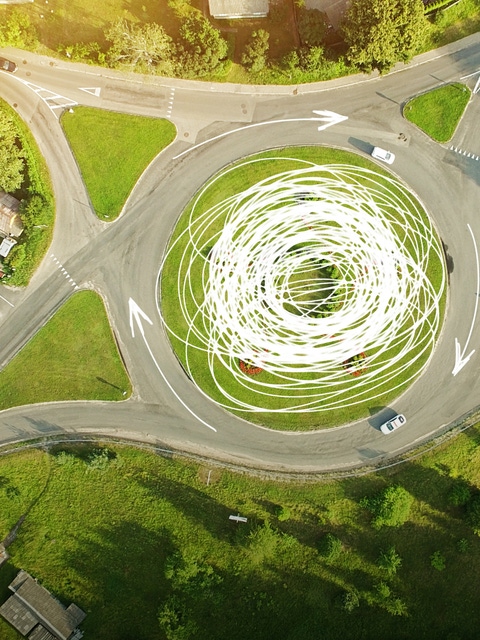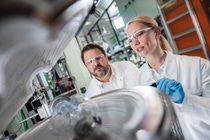25% reduction
Impact on the CO2 footprint of EV battery metals recycled by BASF

Change for climate
Most people accept that for cars, the future is electric. But we’re going further – we want to close the loop on sustainability for electric vehicles (EVs). That means recycling their batteries – an important factor in reducing the overall CO2 footprint of EVs. Our new plant at Schwarzheide in Germany will accomplish this. It’s a major milestone on the road to protecting the climate.
We really love EVs, as you may have heard. That’s why we want to make them truly sustainable. So we’re doing a lot of work to improve the high-performance batteries that power them. We’re developing new cathode active materials, an important component for these lithium-ion batteries, to make them safer, reduce charge times and increase their driving range. That’s all good news for the future of EVs. Moreover, we’re making it possible to recycle the batteries – especially the valuable metals inside, allowing them to be used more than once. That’s important because making the most of our resources is a crucial step towards protecting the planet.
25% reduction
Impact on the CO2 footprint of EV battery metals recycled by BASF
Instead of using fuel combustion, EV motors run on electrical energy. The fact that EVs run on electricity means there are no tailpipe emissions. That’s good for the climate, as well as our lungs. But experts say there could be more than 230 million EVs on the roads by 2030. Considering the batteries in those EVs are made with valuable metals (such as lithium, nickel, cobalt and manganese), what will happen to the batteries when they reach the end of their lives?
Cleaner, greener and more sustainable, EVs have captured hearts all over the planet. And ours, too.
Using the Earth’s natural resources responsibly is part of our wider response to the climate crisis. So it’s important that we find effective ways to recycle EV batteries once they have reached the end of their life – especially the metals inside the battery materials. That’s what we mean when we talk about “closing the loop” and “circular economy”. If the valuable parts of an EV battery can be recycled (and assuming it’s charged using renewably sourced electricity), the whole process can form a sustainable circle.
BASF researchers are developing a new chemical process to recycle high-purity lithium from EV batteries.
The final section of the sustainability circle will take the form of plants like the one we’re building at Schwarzheide in Germany. This will complement our existing joint venture in China and our global partner network for battery recycling. “This is the next step on the road to further growing our EV battery recycling footprint,” said BASF’s Dr. Matthias Dohrn, Senior Vice President of Battery Base Metals and Recycling. “Together with our research teams, it will enable the fast and effective scale-up of battery recycling technology for a closed-loop battery materials value chain.” Construction of the prototype plant is already underway and start-up is planned for 2023. We expect to build a commercial scale battery recycling plant based on learnings from the prototype plant by mid-decade.
More than 10%
Amount of nickel BASF expects to be sourced from recycling in 2026
The next step on the road to further growing our EV battery recycling footprint
Figures like these show we’re going the extra mile when it comes to recycling EV battery materials. And that’s not just because we love EVs – it’s because we know they have a key role to play in the world’s response to the climate crisis. Emission-free vehicles that are fully powered by batteries that can be recycled and are charged with sustainably generated electricity… now that’s what you call closing the loop.



